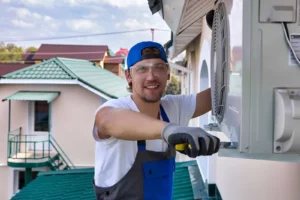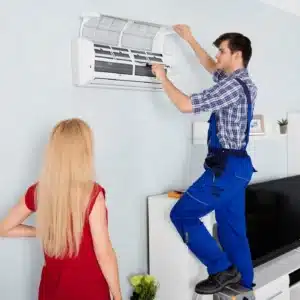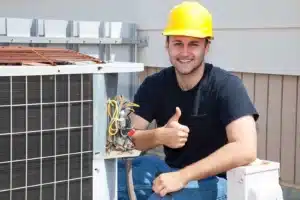Importance of HVAC Maintenance for Commercial Buildings
In Florida’s hot and humid climate, HVAC systems are essential...
As homeowners, it’s natural to wonder about the longevity and performance of essential appliances, and air conditioners are no exception. In this article, we’ll address the common query: Do air conditioners degrade significantly after 1-2 years of use? We’ll delve into the factual aspects of air conditioner performance and explore what homeowners can reasonably expect in the initial years of operation.
Modern air conditioning systems consist of various components that work together to deliver cool and comfortable indoor environments. Key components include the compressor, condenser, evaporator coils, refrigerant, and the blower fan. Each plays a crucial role in the cooling process.
System Quality and Brand
The quality of the air conditioner and its brand influence its overall performance and lifespan. Higher-quality systems from reputable manufacturers often come with better components and durability, resulting in longer operational life.
Regular Maintenance
Regular maintenance is a critical factor in maintaining air conditioner efficiency. Routine tasks such as filter changes, coil cleaning, and system inspections contribute to optimal performance and can extend the lifespan of the unit.
Usage Patterns
How often and for how long an air conditioner operates directly impacts its wear and tear. Systems that are used excessively or subjected to constant on-off cycling may experience accelerated degradation.
Environmental Conditions
The climate and environmental conditions in which the air conditioner operates also play a role. Units subjected to extreme temperatures, high humidity, or frequent power fluctuations may experience different rates of wear.
Minimal Degradation
In general, well-maintained air conditioners typically experience minimal degradation in the first 1-2 years of use. If the system was properly installed and undergoes regular maintenance, it should continue to perform efficiently.
Filter and Coil Considerations
Filters and coils are critical components that may require attention. Over time, filters can become clogged, affecting airflow and efficiency. Regular filter changes are essential. Additionally, coils may accumulate dirt, reducing their ability to absorb and release heat efficiently.
Refrigerant Levels
Refrigerant levels should remain stable in the early years. If there is a refrigerant issue, such as a leak, it’s essential to address it promptly to prevent performance issues.
Monitoring Energy Efficiency
Monitoring energy efficiency is a key aspect of assessing performance. A noticeable increase in energy bills may indicate reduced efficiency, which could be attributed to various factors, including component wear or issues with the refrigerant.
Addressing Issues Promptly
Any decline in performance, strange noises, or changes in cooling capacity should be addressed promptly. Timely repairs and addressing minor issues prevent them from escalating into major problems.
While air conditioners generally do not experience significant degradation in the first 1-2 years, their long-term performance depends on factors such as maintenance, usage patterns, and environmental conditions. Homeowners can ensure optimal performance by investing in quality systems, adhering to regular maintenance schedules, and promptly addressing any issues that may arise. By understanding the factors influencing air conditioner longevity, homeowners can make informed decisions to maximize the efficiency and lifespan of their cooling systems.

In Florida’s hot and humid climate, HVAC systems are essential...

Florida’s warm climate brings many advantages, but it also means...

When it comes to keeping your home comfortable in Florida’s...

In Florida’s hot and humid climate, a reliable air conditioning...

If your air conditioner has been chugging along since the...

Indoor air quality is a big deal, especially in commercial...